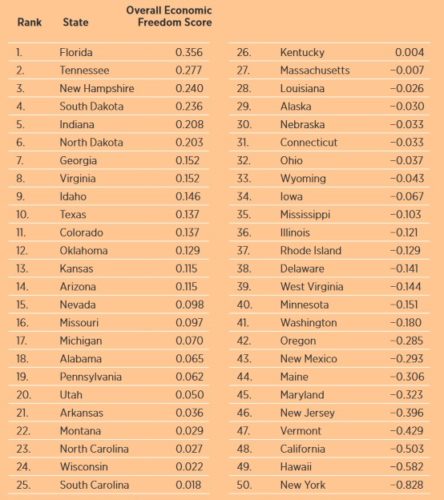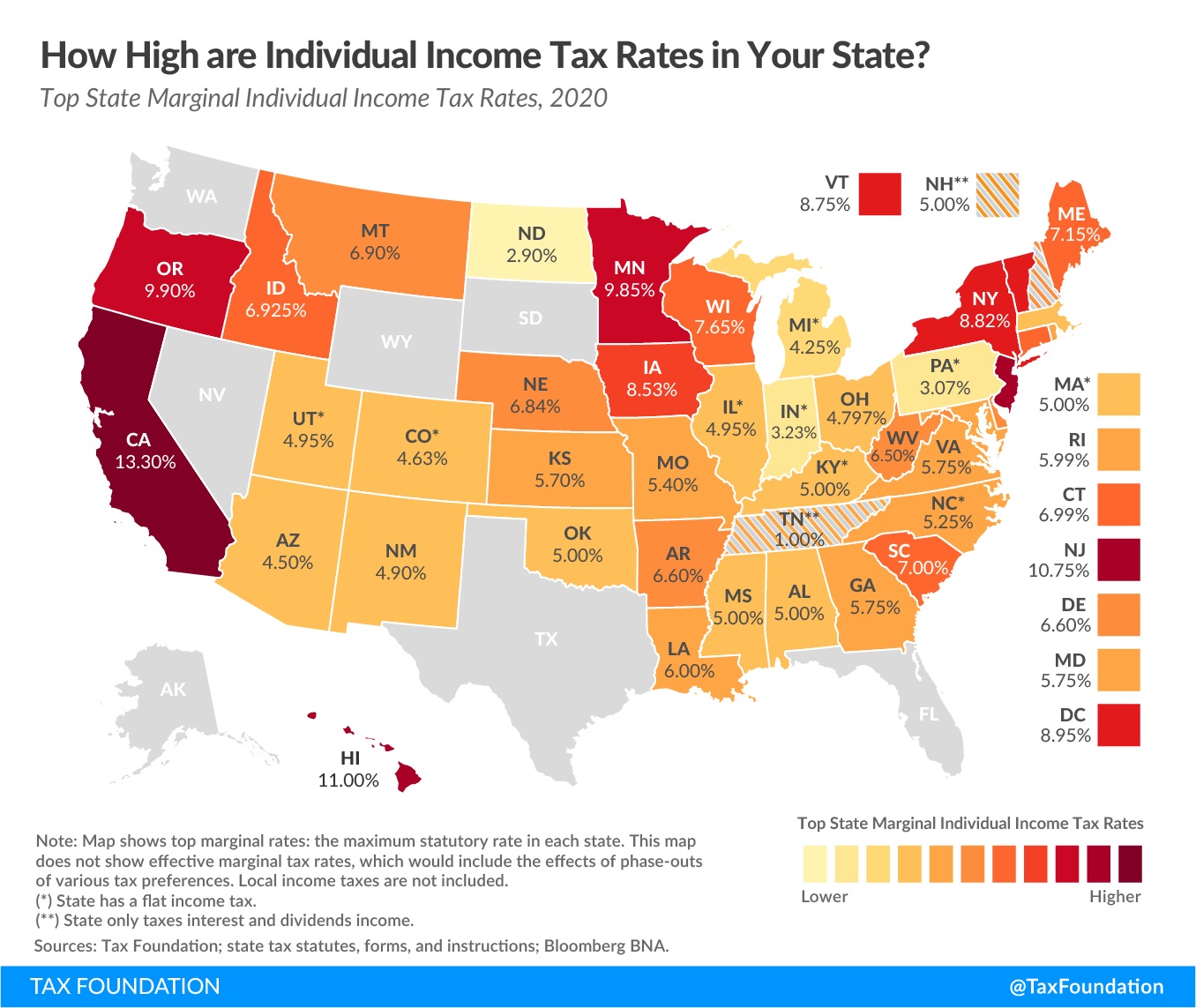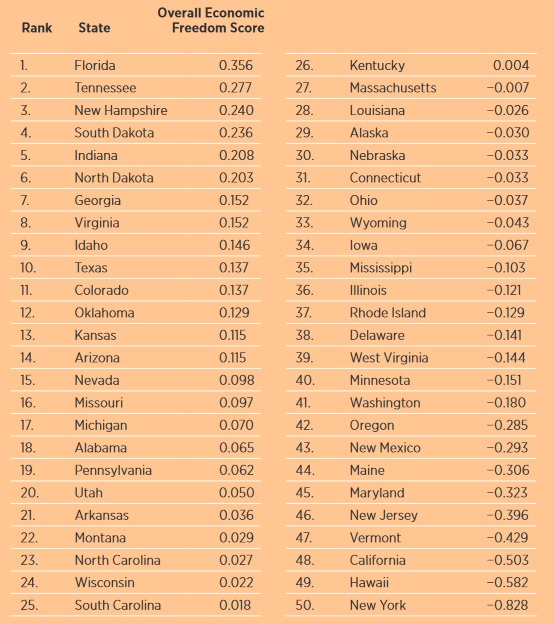by Dan Mitchell
When considering which state has the greediest politicians, the flippant (but understandable) answer is to say “all of them.”
A more serious way of dealing with that question, though, is to look at overall rankings of economic policy.
According to the Fraser Institute, we can assume that Delaware apparently has the worst politicians and New Hampshire has the best ones.
According to comprehensive calculations in Freedom in the 50 States, New York’s politicians seem to be the worst and Florida’s are the best.

But what if we just want to know the state where politicians squeeze the most money from taxpayers? In other words, which state has the worst tax system?
The Tax Foundation gives us part of the answer in their review of state income tax burdens.
Individual income taxes are a major source of state government revenue, accounting for 37 percent of state tax collections. …Forty-one tax wage and salary income… Of those states taxing wages, nine have single-rate tax structures… Conversely, 32 states levy graduated-rate income taxes… Top marginal rates range from North Dakota’s 2.9 percent to California’s 13.3 percent.
Here’s the accompanying map.
It’s very good to live in a gray state (no income tax!) and you definitely don’t want to live in a red or maroon state.

Unsurprisingly, California is the worst of the worst, with a top tax rate of 13.3 percent. No wonder productive people have been escaping the not-so-Golden State.
Hawaii and New Jersey are the next worst states, followed by Oregon and Minnesota. Though it’s definitely worth noting that there’s a local income tax in New York City, which would put the residents of that unfortunate community (if NYC was a state) in second place after California.
P.S. The disadvantage of living in a high-tax jurisdiction is especially significant now that there’s no longer a loophole in the federal tax code that subsidizes state profligacy.
Daniel J. Mitchell is a public policy economist in Washington. He’s been a Senior Fellow at the Cato Institute, a Senior Fellow at the Heritage Foundation, an economist for Senator Bob Packwood and the Senate Finance Committee, and a Director of Tax and Budget Policy at Citizens for a Sound Economy. His articles can be found in such publications as the Wall Street Journal, New York Times, Investor’s Business Daily, and Washington Times. Mitchell holds bachelor’s and master’s degrees in economics from the University of Georgia and a Ph.D. in economics from George Mason University. Original article can be viewed here.
Self-Reliance Central publishes a variety of perspectives. Nothing written here is to be construed as representing the views of SRC.

